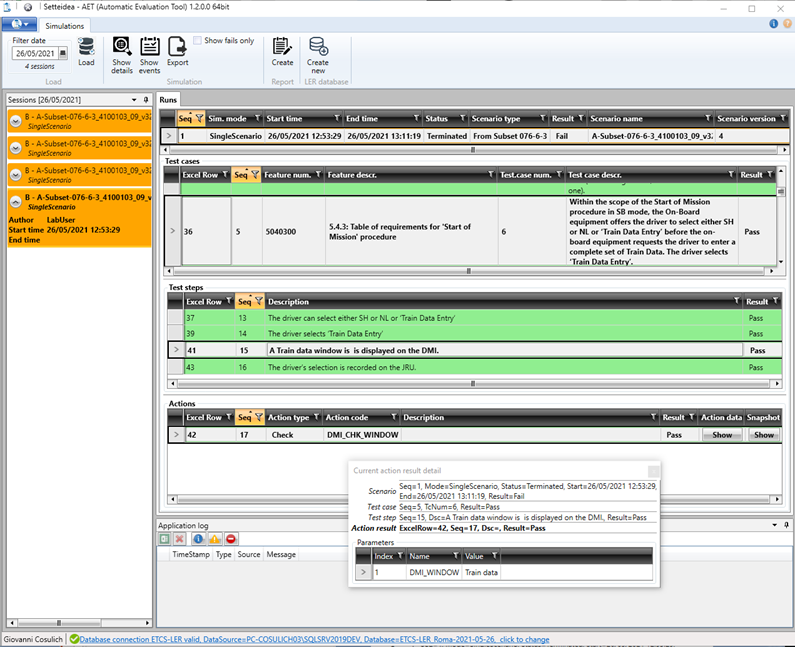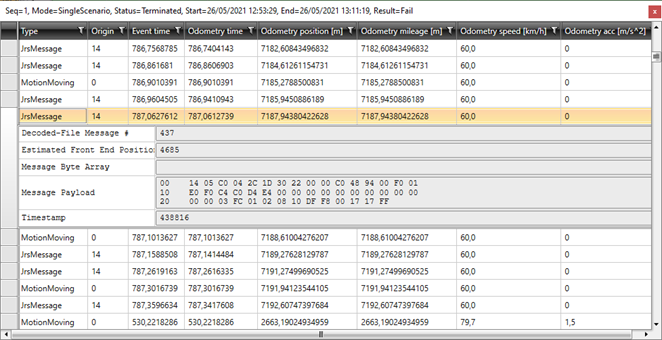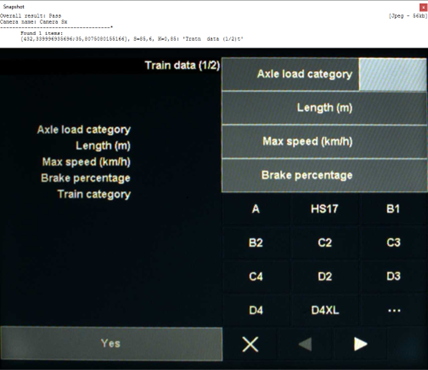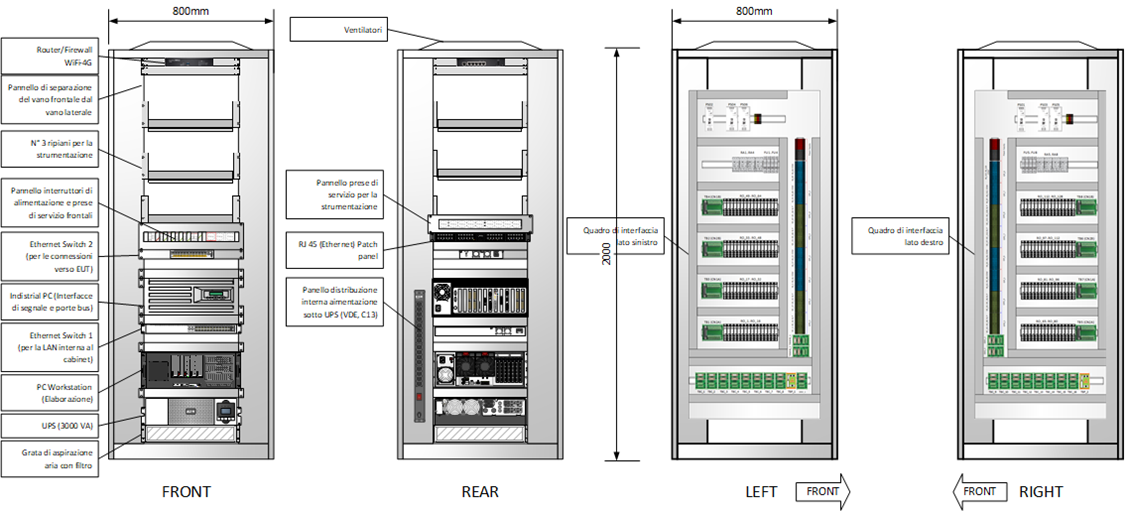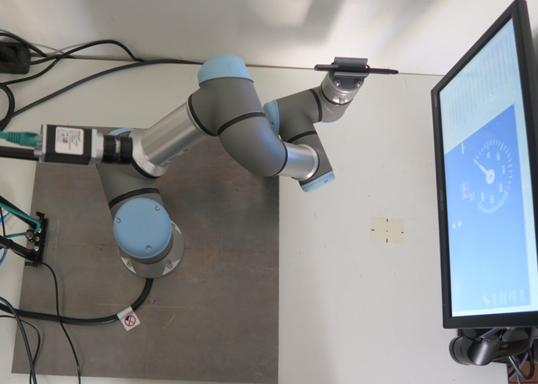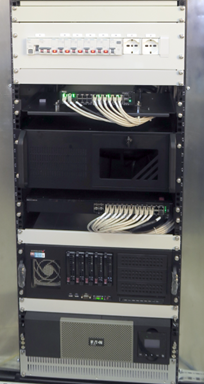ETCS Test Environment
HW and SW platform for real time simulation and testing of onboard ERTMS-ETCS equipment
The ERTMS-ETCS test environment is compliant with the UNISIG Subset-094 architecture, to interface the ETCS onboard equipment supplied by any manufacturer.
APPLICATIONS
- Integration test with trackside devices (eurobalise, euroloop, national systems such as RSC, SCMT, etc.)
- Integration test with ERTMS trackside system (Radio Block C)
- Validation test, according with Subset-076
- Fully automated test, using robot/camera system to handle DMI operations
Etcs Test Architecture
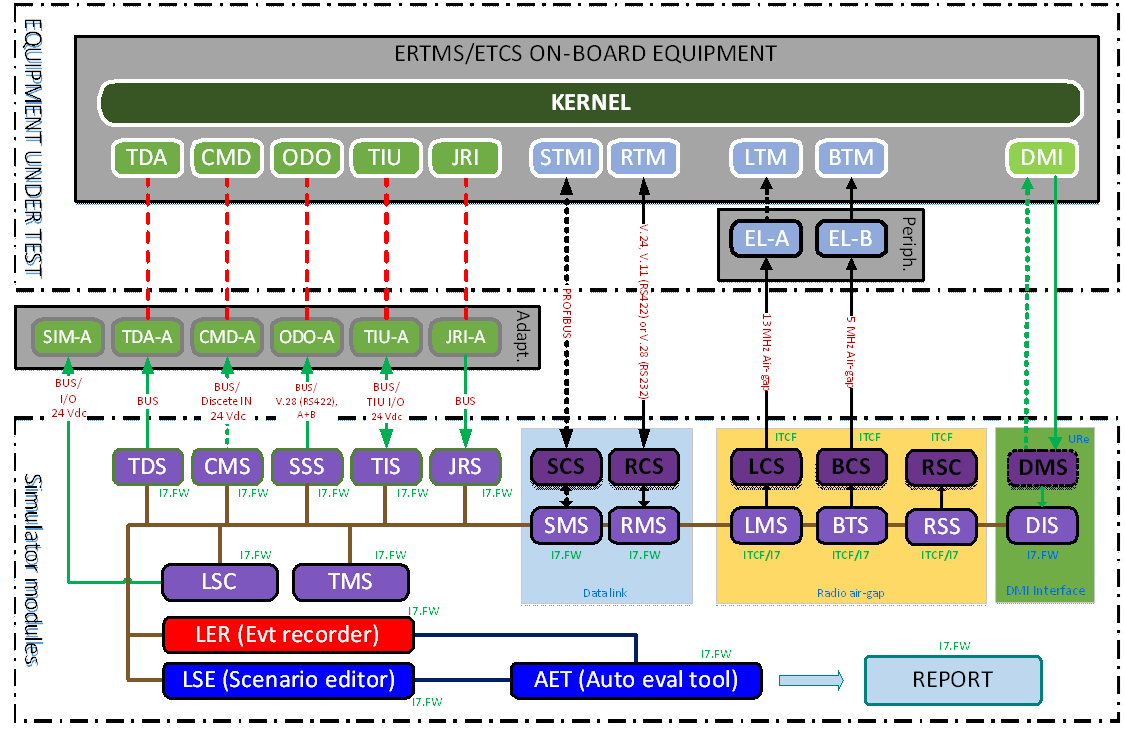
Wide range of interfaces to ETCS onboard equipment
-
Full support to Subset-094 interfacing requirements:
- Wired digital I/O (24 V)
- IEEE 802.3 (Ethernet) 100/1000 Mbps, using TCP/UDP transport layers
- Async Serial port, RS232/RS422/RS485
- Digital encoder emulation (up to 500 km/h), using RS422 transmitter
- Profibus DP (FDL data link layer), to support STM communication
-
Optional Interfaces:
- MVB, for digital I/O interface to ETCS Onboard
- CAN bus
- Synchronous serial port (RS422 physical layer)
-
Euroradio Interfaces:
- GSMR modem emulation (CS mode), on RS232/RS422 serial port
-
AIRGAP Interfaces:
- Eurobalise and Euroloop emulation
- RSC emulation
-
DMI Interfaces:
- Robotic arm (Industrial standard) to emulate the driver operation on the touch screen display (or keyboard), including data entry
- High resolution GigE camera (industrial standard), to grab the DMI display images
- Recognition of symbols (icons) and text, using Matrox Imaging Libraries (MIL)
- Up two display supported
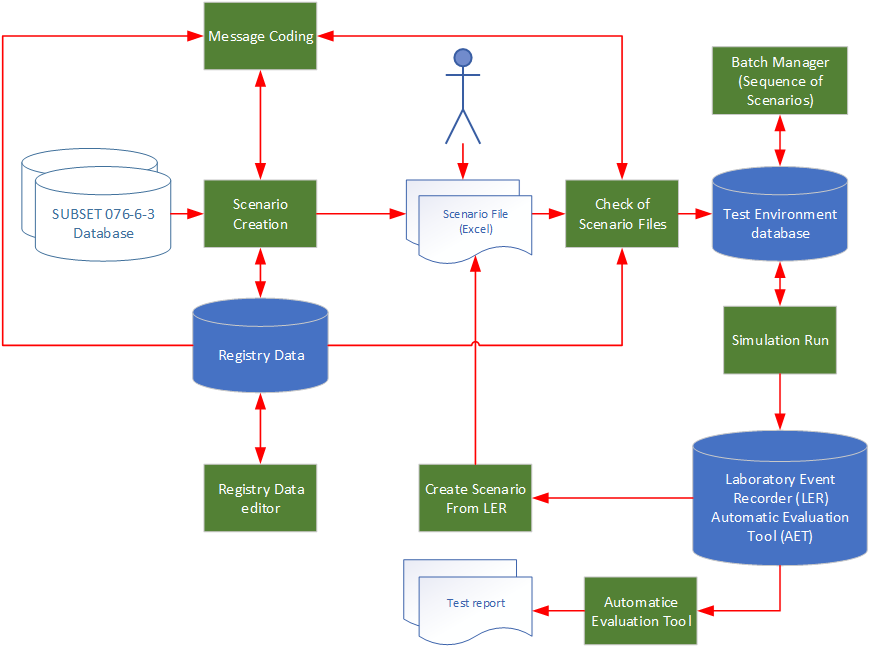
-
The database of Registry data contains all the information to validate the Test Sequences and the Scenario Files:
- A language has been defined for each communication protocol (BTM and LTM telegrams, STM messages, JRS messages, …) to provide automatically coding/decoding functions.
- The database supports more versions of the same Language.
- The set of used language are specified in the scenario file.
-
A specific Language has been defined to describe all the Command and Check Actions to automatically implement the test sequences:
- The command and Check Actions are used to specify the behaviour of the simulator for each step of the Test sequence
- The Actions are scheduled on position base, with the possibility to specify a time delay respect the begin or end of the previous action.
- The Check Actions are automatically evaluated at runtime
- The Test Environment database contains all the information to run the simulations
- The LER/AET database contains the simulation events and the results of each command/check actions, so the results of each step of the Test Sequence.
Simulation and test
- Windows based (.NET Framework) + I7 Framework real-time execution environment
- May integrate customer SW modules (SW in the loop)
-
ETCS specific modules:
- Euroradio safety layer / STM safety layer
- Eurobalise/Euroloop telegram generator
- Train Motion simulator, with hard synchronisation (0.1 m) with balise/loop transmission (up to 500 km/h)
- Flexible I/O management, via hard-wired signal or Subset-094 test protocol over TCP/UDP or serial port
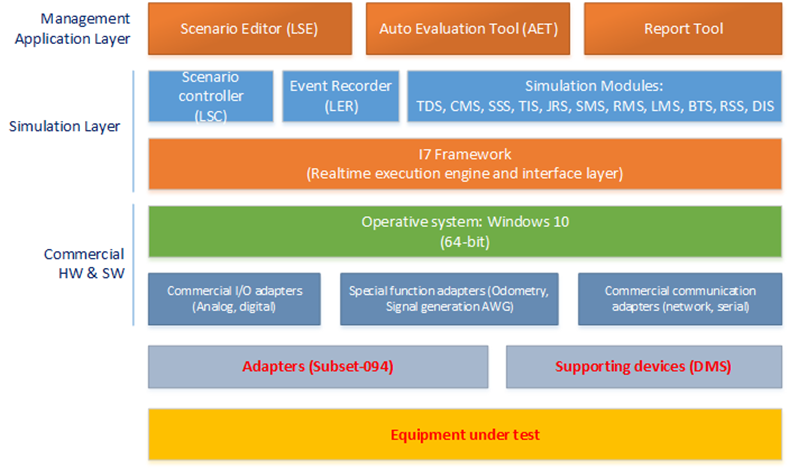
Mamanagement tools
- Windows based (.NET Framework)
-
Data storage uses MS SQL Server database for:
- Subset-076 reference source scenarios
- Custom operating scenarios
- Test result
- Protocols and languages configuration
- Scenario Editor application
- Scenario Manager application
- Automatic Evaluation application tool, for test result analysis
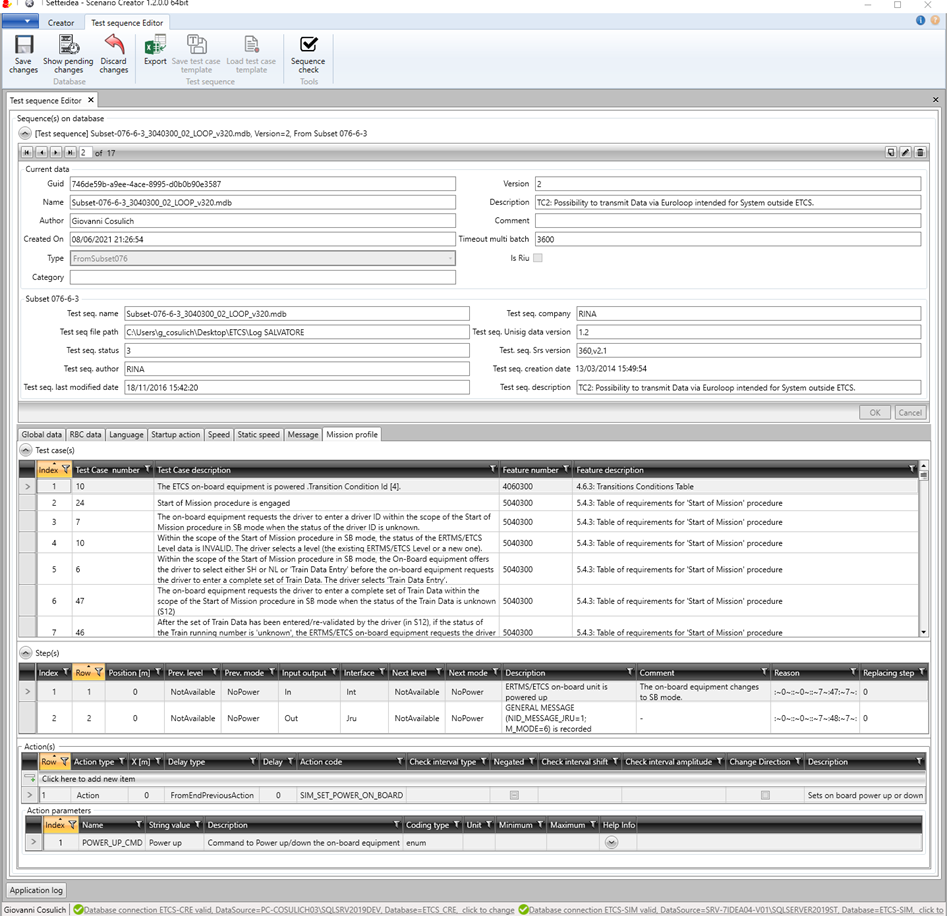
- Allows to create the Scenario Files starting from the Subset 076-6-3, from the results of an interactive simulation or from an empty one
- Provides support to check and validate the Test Scenario
- Manages the data to automatically convert the Step of Subset 076-6-3 in Command and Check Actions
- Imports and Checks the Scenario Files
- Manages the data to automatically Run sequence of simulations
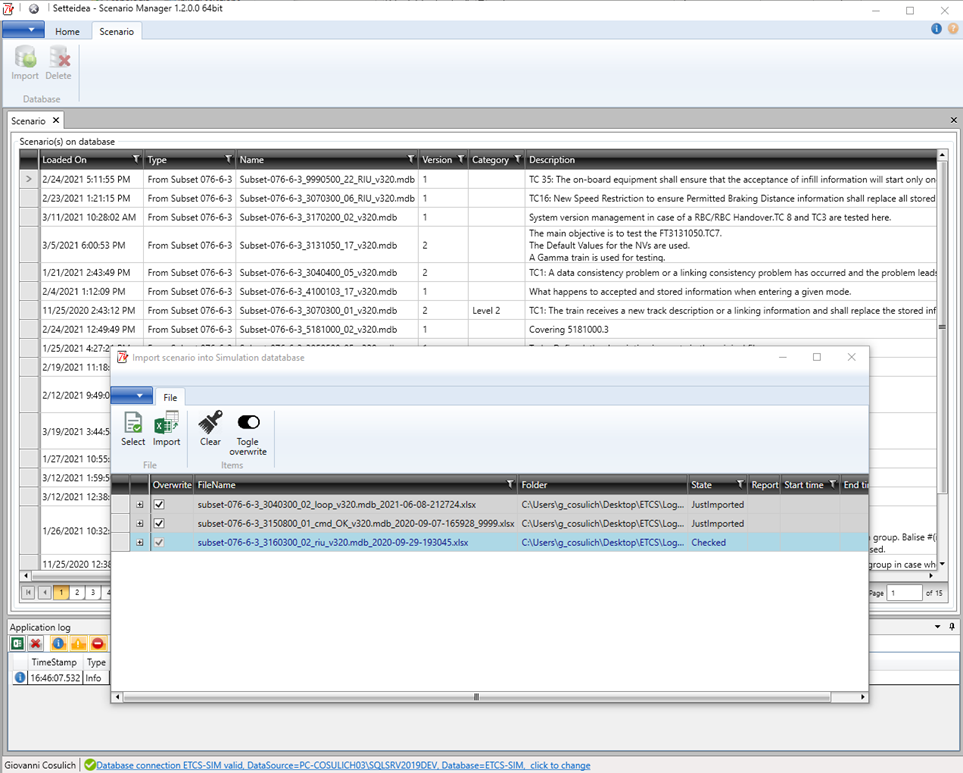
- Records the simulation events
- Records the results of each Command and Check Actions
- Provides Detailed Log files of the messages of all communication protocols
- Create the report (pass/fail) of the single simulation or of a sequence of simulations
- Allows to check the Simulation results at runtime
